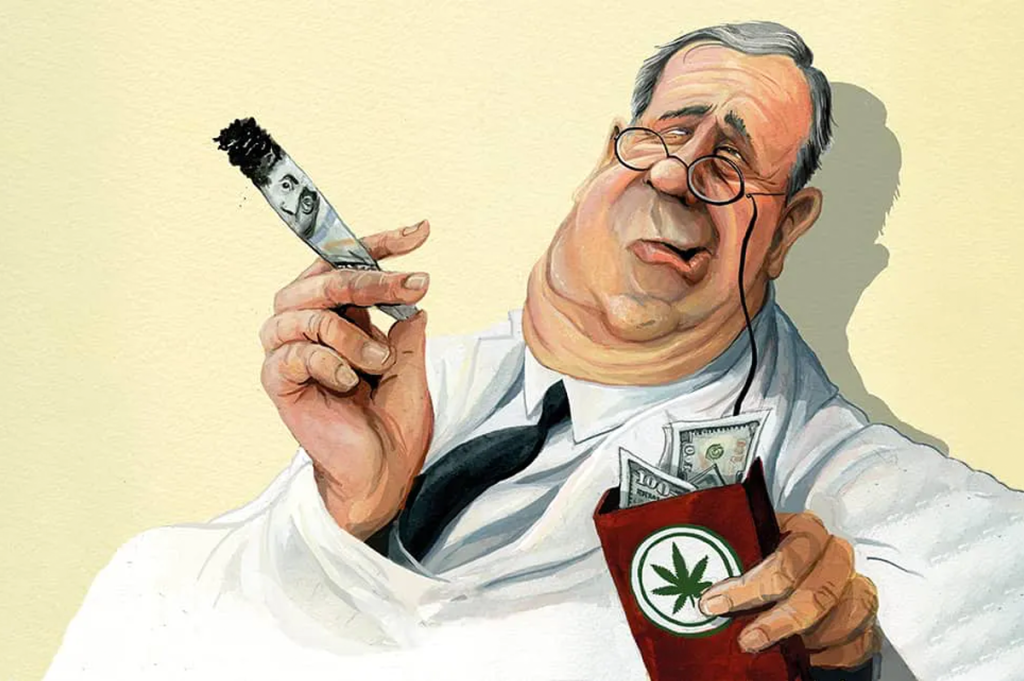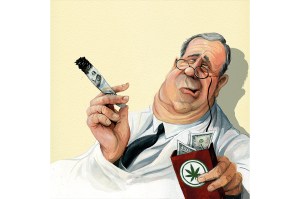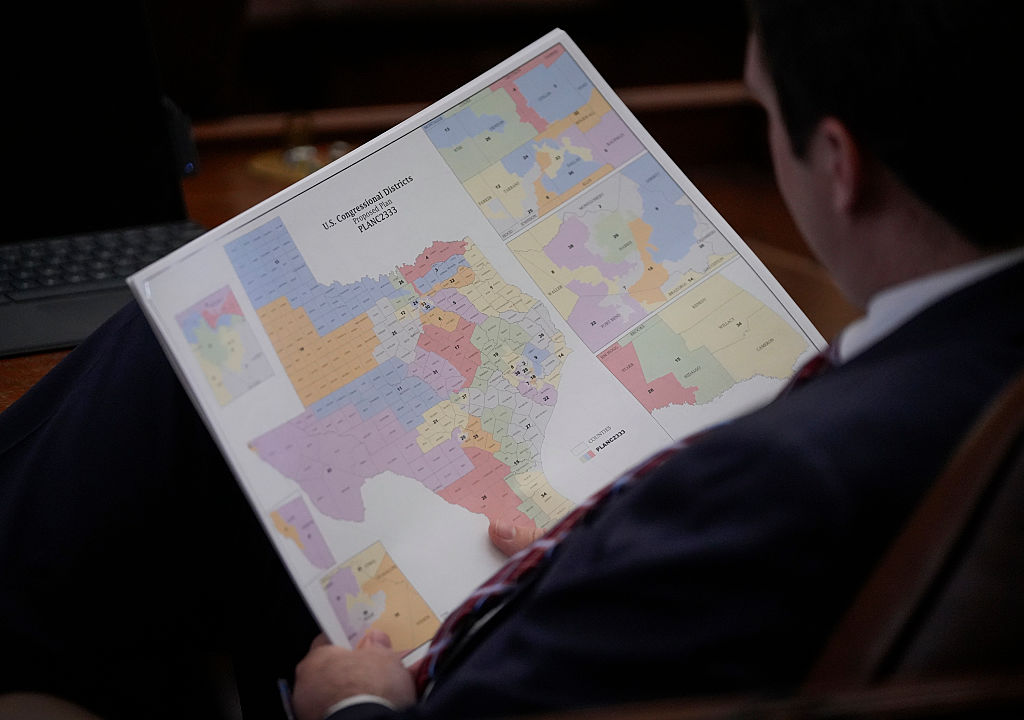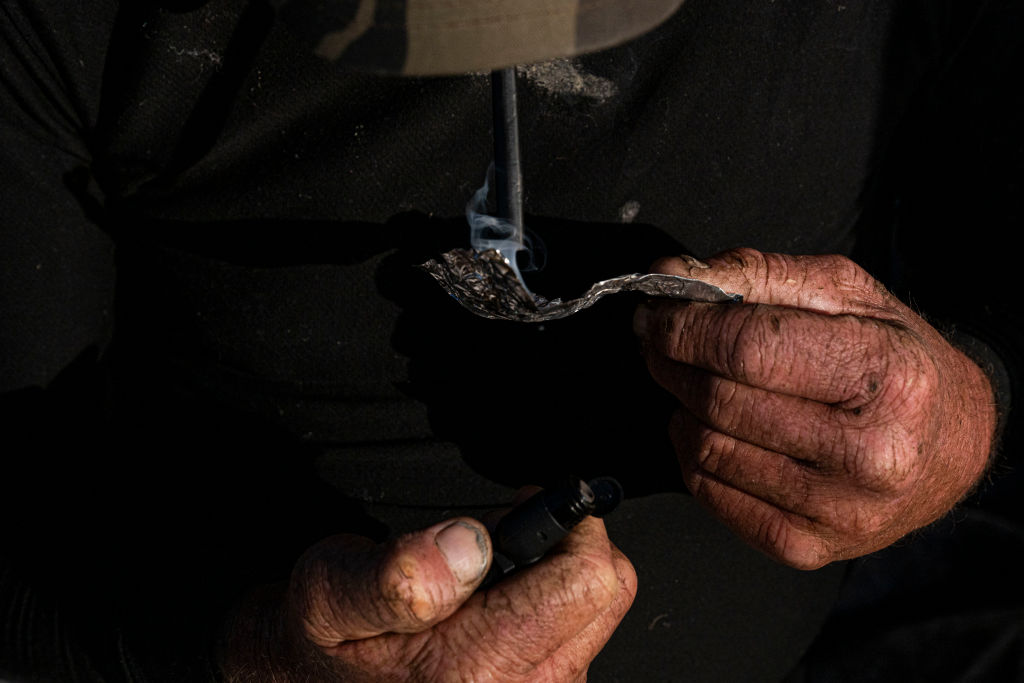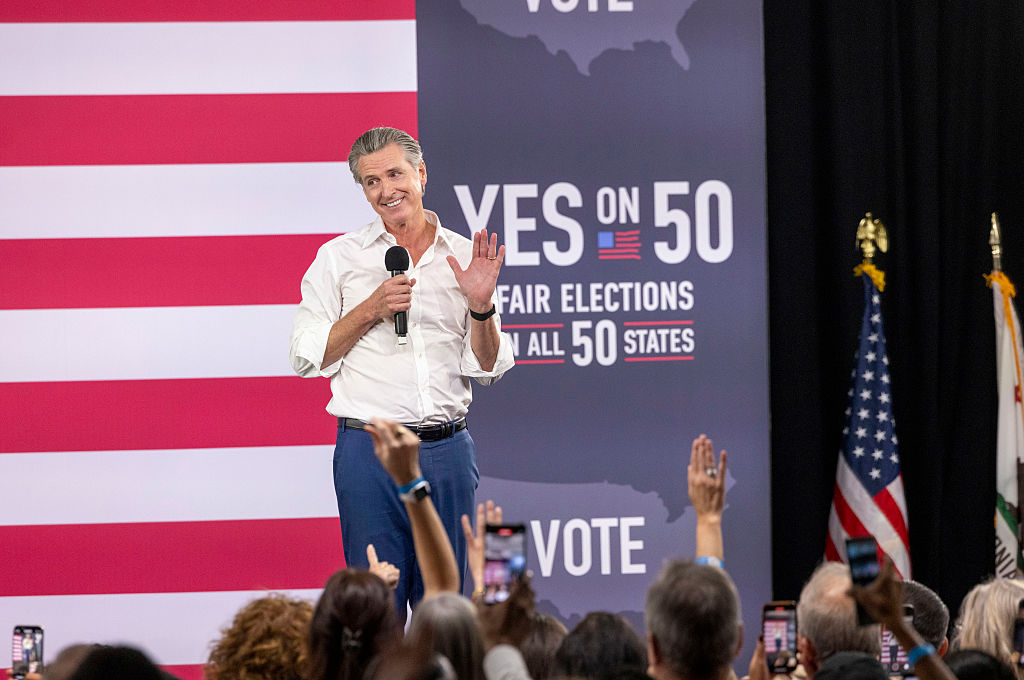Indiana
Once cannabis legalization started being taken seriously a decade ago, the majority of liberal Americans supported it. It just seemed like common sense. No longer would pot users have to rely on street dealers, so criminal organizations would wither away. At the same time, states would benefit from billions in tax revenue. Booze, after all, was once held under the thumb of prohibition in the US, bringing about thirteen years of black market activity and gang violence, which all ended when prohibition was repealed in 1933. The alcohol trade is now one of the leading earners in America and contributes roughly $260 billion to the economy. Why would marijuana be any different?
Ten years on and it’s clear that America’s cannabis experiment has been an abject failure. For the nineteen states that have legalized weed, the easy part was passing policy. Making a legal market work is the real challenge.
As states continue to try to sort out the logistics of running a taxed and regulated market, it’s business as usual for illicit operations. Illegal weed still outsells legal weed. At the same time, many legitimate cannabis companies, which are required to pay upwards of 70 percent in federal taxes, are struggling to turn a profit.
In Illinois, where weed was legalized at the start of 2020, cannabis buyers must pay around 40 percent in local, state and excise taxes; illegal sales there were worth more than $2 billion last year simply because the state’s consumers are economically motivated to buy from the illicit market. California, which is the largest legal cannabis market in America after it legalized recreational use in 2016, is no different. Since 2018 it has generated more than $4 billion in tax revenue, but the illicit market is worth more than $8 billion a year. The legal market can’t compete: just 25 percent of the marijuana consumed in California is from legitimate sources. California is now experimenting with temporary tax cuts on the cultivation side in a last-ditch effort to save the market from plummeting further into oblivion. Few politicians seem to see the big picture: the criminal drug organizations they’re trying to eliminate aren’t going anywhere.
In fact, the extinction of the black market is the chief fallacy of arguments for legalizing marijuana. If anything, legalization has forced hordes of stoners, namely the poor, to continue to rely on the streets. In Colorado, one year after retail marijuana operations began to open across the state, the resilience of the black market was evident.
Legalization has also benefited criminals in states where pot is still illegal. Gangs have seized the opportunity to smuggle products across state lines, selling legal weed at a huge profit. In Indiana, which is still a prohibition state, the cannabis market has broadened off the back of the drug being legal elsewhere. Dealers are suddenly stocked with a cornucopia of various cannabis strains — all of which were grown under the charade of statewide pot laws — as well as vapes, edibles and concentrates, all of which would never have travelled more than 1,000 miles across America if legalization hadn’t come about.
State-wide legalization hasn’t made life any easier for the police, either. In California last year, state law enforcement agencies seized 1.2 million illegally grown cannabis plants and more than 180,000 pounds of processed pot. The state’s Department of Cannabis Control is expected to seize $1 billion worth of illegal cannabis products this year. Law-enforcement agencies were told that legalization would allow them to focus on real criminal activity — rapes, murders and theft. But law enforcement simply can’t shake the burden of policing the drug.
Law-enforcement agencies are also in a constant battle with interstate drug traffickers. Criminal organizations are using couriers, airline employees and shipping companies to transport pot to various locations. In many cases, they’re even using the US Mail. The authorities can’t keep up.
In the face of these challenges, President Joe Biden announced last week that he would pardon all federal pot offenders convicted for “simple possession.” It’s a move intended to clear the criminal records of roughly 6,500 people — none of whom have ever served time in prison. Biden also advised state governors to take similar action. In addition, he ordered the secretary of Health and Human Services and the attorney general to review the drug’s Schedule I classification. A favorable assessment could result in marijuana being downgraded from its Schedule I classification — ranking it as dangerous as heroin — on the Controlled Substances Act.
I’m not against marijuana. I’ve had an on-off relationship with it for the better part of twenty-five years and I’ve written in favor of drug reform for every major cannabis publication in the US. I don’t believe anyone should go to jail for weed, nor do I think prohibition has saved Americans from the pits of hell. However, legalization, as much as it pains me to say it, hasn’t saved us either. The policy change may have made it a waste of time for Mexican cartels to continue smuggling it into parts of the country, but it has opened it up to a wealth of domestic crime. The cartels have relocated to America.
Some believe the disparity between state and federal law is responsible for this failure. They argue that if Congress would just legalize weed nationwide and establish federal regulations, none of these downsides would continue. Unfortunately, as hopeful as that may sound, there are strong reasons to doubt that full governmental support for a legal regime will improve matters.
Canada legalized marijuana for adult recreational use years ago and the black market is still outpacing the legal sector. Perhaps a lag could be expected as people adjusted to the new law — but five years later? The country is still having the same problems as the US of convincing the majority of consumers to go legal. Around 43 percent don’t want to pay the high taxes. If they can get it cheaper on the street, that’s what they’ll do.
In the meantime, Canada’s largest cannabis growers have lost millions, stock prices have dropped and many have bailed out. There’s just no sustainable growth for market survival. Why would the US be immune to this aftermath?
What’s more, one side effect of legalization is that more people adopt the belief that “weed is harmless.” Many are of the opinion that if marijuana won’t kill them, what’s the worry? But the absence of fatal overdoses doesn’t mean pot is risk-free. In California, cannabis-related hospital admissions have spiraled since legalization. While the state’s emergency rooms once saw slightly more than 1,000 overdose cases a year, the number has since swelled to considerably more than 16,000. Many of them are children. Other legal states have reported the same madness. It appears that in addition to not understanding how to regulate marijuana like alcohol, nobody comprehends how to socially moderate it either.
Although marijuana isn’t as addictive as harder drugs, it has been shown to cause dependency and other mental-health issues, especially if the user is genetically prone to such things. Columbia University also finds that “addiction” rates in legal states are approximately 40 percent higher than in areas of prohibition. One Harvard medical professional told me that cannabis dependency is largely attributed to abuse. Most cannabis users simply consume too much. “Any substance can be misused, and cannabis is no exception,” he says.
The cannabis advocacy camp spent decades claiming that it’s impossible for marijuana to be a gateway to harder drugs, but this argument is ridiculously misguided. Marijuana can be just as much a conduit to more dangerous substances as alcohol can. I personally found it easier to experiment with harder drugs in my twenties once I figured out that marijuana wasn’t the scary malevolent beast proclaimed by educators in my formative years.
Perhaps this experiment should teach us a valuable lesson: ending alcohol prohibition nearly ninety years ago may have made sense as a recovery effort out of the savage iniquities of the Great Depression. But times have changed. So have people. The legalization of more mind-altering substances — a move that is sure to advance on the heels of legal marijuana — will only serve to devastate a nation already marred by narco dependence.
What’s next for America? Legal cocaine? Heroin? Meth? Parts of the country are already moving toward the legalization of psilocybin (magic mushrooms). If a taxed and regulated scheme is the remedy for the societal afflictions brought about by decades of marijuana prohibition, it should be, if cannabis advocates are to be believed, a suitable fit for every other drug.
It doesn’t take a genius to see that’s a dismal path. The US might yet find an effective way to promote drug reform. Legalization, however, doesn’t appear to be the right approach.
Mike Adams’s Marijuana Misfit: Two Years of Terror is out now. This article was originally published in The Spectator’s UK magazine. Subscribe to the World edition here.



